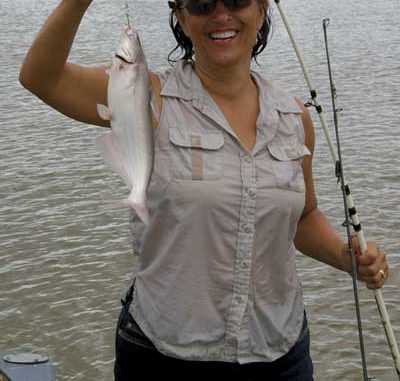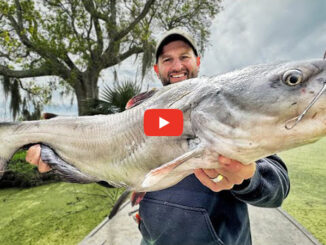
There are some things that are hard to admit. There are also other things you may never live down.
Take Bill Buckner’s error in the 1986 World Series for example. Buckner’s error with two outs in the bottom of the 10th allowed the Mets to go on to win game six, knotting the series at three games apiece. You know the story — the Mets won game seven and took the Red Sox four games to three to become world champions. Buckner, a prolific major league hitter, now living in Idaho, will never live it down.
How about Appalachian State this past fall beating the most storied program in collegiate football at the “Big House” in Ann Arbor, Mich. Michigan didn’t get LSU coach Les Miles, and it will take new coach Rich Rodriguez quite some time to help the Wolverines live that game down.
Then there’s a certain former president — never mind, I won’t go there, this being an election year. Nonetheless, let’s just say he’ll never live it down.
What I’ve learned in life, the best way to live things down is to just get it out in the open and let the chips fall. Admitting the truth allows a sort of cleansing of the soul that lets you sleep at night.
So here goes — my wife Christine just might be more of a diehard fisherman than me. What’s more, when it comes to fishing catfish on anchor, she beats the living daylights out of me, catching more fish, nearly every time we go — especially, downriver starting from Morgan City.
Each spring, folks gather under the bridges in Morgan City, which usually signals the run for blue cats is on. Typically, the run starts in April — give or take a week — though much depends on the flood stage as the river always has a spring rise and subsequent fall.
Local fishermen driving to work each morning do the chicken neck thing and crane to see if boats are on anchor below the tri-city area bridges that join Morgan City and Berwick. Like farmers who drive rural country roads scanning their crops, these recreational anglers look north toward the Berwick locks joining Bayou Teche to the Atchafalaya River and then south to where the river transects the Intracoastal below the train-trestle bridge.
You can take it to the bank, when just one boat is anchored out on the water below, the morning commute to work is going to cause that guy to quit listening to talk radio. No, he’s going to lose all consciousness of the topic of the day and start strategizing whether or not he has enough time after work to get a line wet and still get to Junior’s Dixie Youth baseball game that evening.
Such was the case with me. When I mentioned the boats to Christine, her Cajun statement question was, “So, you’re taking tomorrow off and we’re going?”
“Not exactly,” I replied. “What about Saturday?”
Such things have to be planned. Friday evening I would make a stop in Patterson at Rogers Bartley’s house to pick up some river shrimp, stop and pick up ice, go home and hook up the boat, plus load the rest of our gear.
Bartley, 59, is a commercial fisherman who packages and sells river shrimp to local anglers, besides fishing catfish himself. He knows the Atchafalaya River, and each spring he may put out anywhere from 30 to 70 shrimp traps to satisfy the needs of recreational fishermen as well as his trot lines. And, occasionally, when he has the unction to pull out his own rod and reel, it doesn’t hurt to have enough on hand for personal use.
Conduct a poll of what is the best bait to use, and the vast majority of those cat fishermen on anchor below those bridges will agree — river shrimp.
“I’ve always used river shrimp,” Bartley said with confidence from years spent in the marshes south of Morgan City. “I’ve tried cut mullet, shad and beef tongue, but I’ve murdered the catfish on river shrimp.”
For the analytical person wanting to speculate on why river shrimp are so effective on catfish, this isn’t like fishing for more glamorous fish such as bass and sac-a-lait with artificial lures. It doesn’t take a lot of figuring out.
Egg-laden river shrimp are in the grassy shallow water tributaries doing what they do with all of those eggs — laying them in the grass up and down the river. Blue cats happen to be running, and river shrimp happen to be their primary food source.
Find a good place along the river where catfish are biting, and hook on a river shrimp; odds are you’re going to catch fish. Can you substitute saltwater shrimp? Sure, but river shrimp are better.
“When catfish start coming up into the rivers, they more or less feed on those river shrimp,” Bartley said. “A lot of times you can get them to hit on saltwater shrimp, but it’s not as good as the freshwater shrimp. I guess maybe the eggs that the shrimp have are like a delicacy to them.”
From a tactical standpoint, again, this isn’t like bass or sac-a-lait fishing. It’s on anchor, and your line stays in the water until a fish happens to take your bait. The tactics boil down to rigging for river fishing in order to maximize your time on the water catching 1 1/2 to 2-pound fish — producing perfect fillets for frying.
Jump to the Louisiana Sportsman magazine archives to read the rest of this feature, which first appeared in the April 2008 issue. Be sure to subscribe to ensure every information-packed issue is delivered right to your door.
Check out up-to-date reports form users and post your own reports in our fishing forum. If you aren’t already a registered user, just click here to fill out the short form and get started today!
